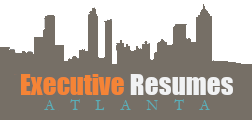For executives between careers, the daily grind of the job search becomes more stifling every day. Connections go unanswered, interviews becomes stressful and unrewarding, and discouragement always seems just around the corner. But one executive tool not only strengthens connections and increases industry knowledge, it boosts job search verve. If you’re struggling to find a new career, meet your new business partner: the informational interview.
The Importance of Informational Interviews
 Informational interviews have many facets, all of which benefit job seekers. They build a connection with someone who may help you land a job, they prepare you for the position (or industry) where you’d like to work, and they give you unique insights into the inner workings of a specific company. Informational interviews help executives approach potential jobs with clear goals and insider information on how to accomplish those goals.
Informational interviews have many facets, all of which benefit job seekers. They build a connection with someone who may help you land a job, they prepare you for the position (or industry) where you’d like to work, and they give you unique insights into the inner workings of a specific company. Informational interviews help executives approach potential jobs with clear goals and insider information on how to accomplish those goals.
How to Maximize an Informational Interview
- Develop a strategy. Like yourself, each interviewer has motives for conducting an informational interview. He may be doing a favor to a mutual friend, he may be screening you for a future with his company, or he may have his own research in mind. If the interview is secured through a mutual contact, prepare a series of questions. Keep the interview casual, but work your skills and job history into the conversation. If the interview is secured directly, approach it as an unofficial interview. Keep a polished resume on hand and come prepared to not only to ask, but also to answer questions.
- Take notes. No matter how high on the food chain your interviewer is, he or she will have valuable insights about the current climate of the industry and the inner workings of his or her company. Jot down information that may prepare you for your next career — or help you land it.
- Ask the right questions. And no, “Do you have openings available?” is not one of them. Come prepared with 5-10 thought-provoking questions about the industry and the interviewer’s role within it. Only discuss your executive talents in the framework of casual conversation. If your interviewer has questions for you, allow him or her to redirect the conversation at his or her leisure.
- Follow up. Informational interviews take just as much time as job interviews. Thank your contact for sacrificing personal time to give you insights into his or her position. Send an email or handwritten note within 48 after your interview.
For more information about building an executive career, contact Colleen at Executive Resumes Atlanta.
